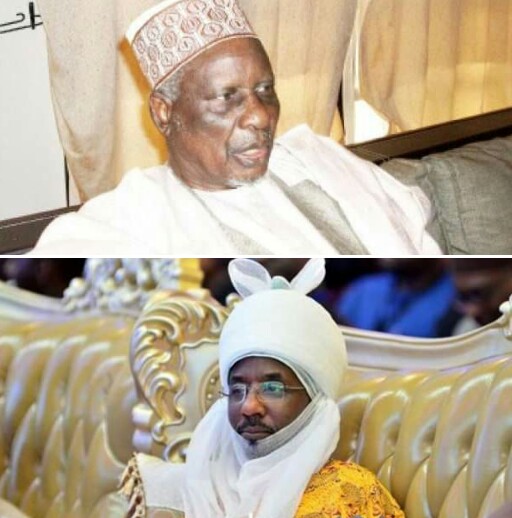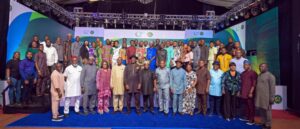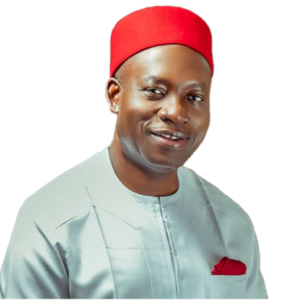
A founding member of the Arewa Consultative Forum and elder statesman, Alhaji Tanko Yakasai, shares with TED ODOGWU his thoughts on the dethronement of Muhammad Sanusi as the Emir of Kano
How did you receive the news of the dethronement of Muhammad Sanusi as the Emir of Kano by the state government last week?
Well, I do not have any position on this, except that I know that the Emir was appointed by a governor and therefore he is subordinate to the governor. I was born here in Kano and I know the tradition in the palace. Since when I was young till today, (the tradition) is that both educated and uneducated emirs tend not to speak too much. They treasure their words. The Emir (Sanusi) was born in Kano, but he was largely brought up in Lagos and Kaduna. His father was a federal civil servant who rose to the position of a Permanent Secretary. As it is natural with civil servants, particularly at the federal level in Foreign Affairs, they don’t stay in one place. The result is that the emir was initially living with the late Minister of Defence, Alhaji Inuwa Wada, but later when the father was back, they changed him. The emir is only a Kano man; he did not live alongside Kano people until he mounted the throne. That was the beginning.
Sanusi was not given the right to defend the allegations against him. Do you think that was right?
I am not in government to know whether it was right or wrong. The emirate council members would be in a better position to answer that.
Part of the reasons people alleged for his removal was that some of the reforms he was talking about were western in nature and therefore alien to Kano. What do you feel about that?
I wouldn’t know that.
What is your take about his being outspoken as an emir?
The first thing I know, which you also know is that before his appointment, the eldest son of the late Emir of Kano, Ado Bayero, was announced as the emir but it was later changed. His (Sanusi’s) name was announced by Senator Rabiu Musa Kwankwaso, who was then the governor while the current governor (Abdullahi Ganduje) was his deputy. So, he was appointed by Kwankwaso while he (Ganduje) was the deputy. Unfortunately for the emir, the duo (Kwankwaso and Ganduje), who made him emir parted ways. And as God would have it, Ganduje became the governor of Kano State. Now, I think the Emir felt that he owed his office to the man who appointed him, which is natural. But unfortunately for him, in-between the time he was appointed and subsequent events, when the two people who appointed him parted ways on party basis, the deputy now became the governor and I think in my opinion, I don’t think the emir sees the deputy as the man, who appointed him. That is what I see as the beginning of the crisis. Later on, the emir has been speaking his mind, which I respected but some of what he says were not in consonance with the established tradition in the society. He has not been part and parcel of that society he originated from. So, this is the problem.
There was an issue about the banishment before his freedom was restored by the court. What do you make of that episode?
There is a lot of history about Kano, particularly about the removal of rulers in Kano from over 1,000 years to date before the advent of Fulani dynasty and after the emergence of Fulani and Kano Emirates. Many traditional rulers were removed during that era. The grandfather of the former emir (Sanusi) was removed by his best friend. If there was any individual that can be said to be responsible for the emergence of Sardauna of Sokoto (Ahmadu Bello) as the Premier of Northern Nigeria, the grandfather of this deposed emir (Sanusi) was responsible. Yet, he (Bello) went ahead to remove him. I think people do not know or don’t want to accept that traditional rulers are subordinate to the government because the governor is recognised by the constitution while traditional rulers are not recognised by the constitution of the Federal Republic of Nigeria. Only the three tiers of government are recognised by our constitution; the federal, state and local government as the authority. So, you either agree on what the constitution provided us with as the authority or there might be trouble.
Some of the things Sanusi criticised was the way the government did not do enough on the increasing number of out-of-school children and misplaced priority in governance, which didn’t seem to go down well with the government. What would be your take on that?
There are two ways to offer advice; one is that people who go to those in authority to offer their advice privately tend to achieve more success. They tend to meet the listening ears of those in authority. But for people who go to the media or the public place to air their views, those in authority would think they are playing to the gallery and are not being honest about their views. That has been the problem we are having in Nigeria when it comes to situations like this. I’m a politician so I say my things openly, and that is because I don’t have access to the government. So, that is the only avenue I can use to criticise the government. I do it as a national duty because I could see something which they may not see. So, I could feel I should educate them. I said President (Major General Muhammadu) Buhari was not competent that he would not achieve what he said he was going to achieve. I said it that he cannot succeed in the fight against corruption; I said he cannot succeed in crushing insurgency and few other things.
Should people not have a right to their opinions?
Yes, every Nigerian is entitled to their opinion as guaranteed by the constitution, except if you are not saying it within the confines of the law of the land.












